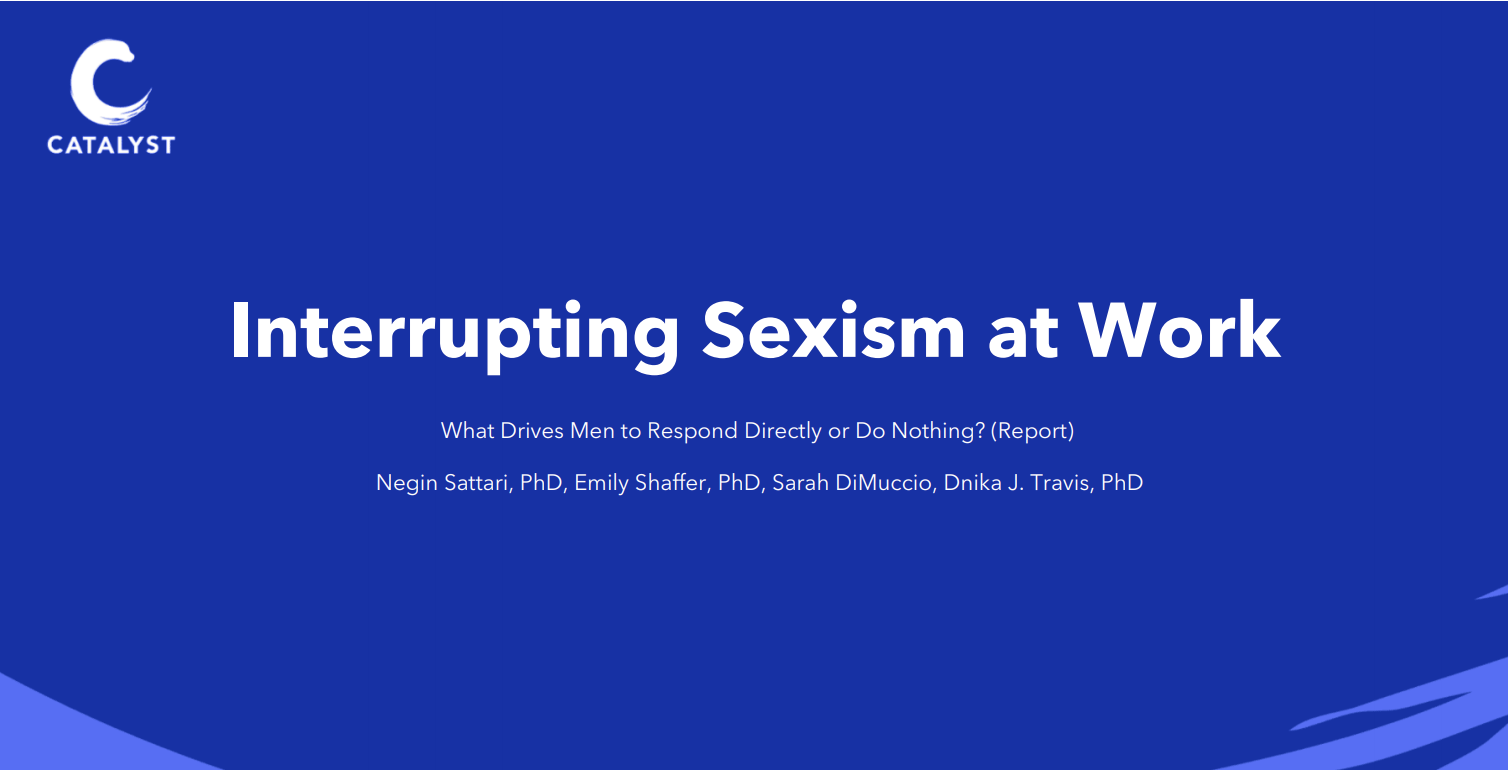
The role of personal agency and organizational culture
Project Highlights
Problem
Sexism in the workplace remains a widespread issue that plagues companies around the world. In order to make workplaces more equal, employees need to call out sexism when they witness it happening. However, men are often reluctant to confront sexism for many different reasons.
This research set out to understand how men’s personal agency can propel them to directly confront sexist behavior, but also how organizational climates can overpower these individual factors to keep men silent.
My role
Thematic coding and analysis of the qualitative interviews.
Assisted in writing up the report.
Method & Analysis
This study relied primarily on a quantitative approach using survey data collected from 1,493 men. We conducted qualitative interviews with 27 men in parallel to inform our thinking about how men’s behavior in the workplace is influenced by their personal agency as well as organizational conditions
We analyzed the data using exploratory factor analysis, descriptive statistics, correlation, and linear, logistic regression, and thematic analysis in NVivo.
Results
Personal agency links to men’s intent to take direct action to interrupt workplace sexism.
Negative organizational climates can stifle men, increasing the likelihood that they do nothing.
Proposed solution
Understanding what drives men to interrupt sexism—and what inhibits them—can help organizations and leaders build work environments where employees feel valued, trusted, authentic, and psychologically safe. Our study shows that it’s not enough for organizations to equip men with strategies to help them directly interrupt sexism. To create an environment that empowers men to interrupt sexism, companies must address their own cultures—within all levels and corners of the organization.
Report
The findings of the research were presented in a report published by Catalyst. This report was written by my entire team and can be found by clicking the button below.
